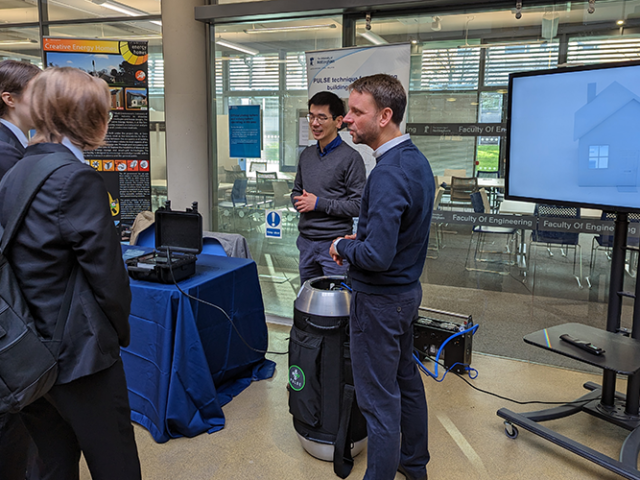The Centre for Wireless Innovation (CWI) at Queen’s University Belfast relies on the state-of-the-art LPKF ProtoLaser R4 to conduct RF research with high-precision structuring of sensitive materials.
Queen’s University Belfast is a Russell Group university. Its Centre for Wireless Innovation was ranked among the top 100 universities in the world in the field of “telecommunications engineering” according to the Shanghai Ranking 2024. The university has a proud history of innovative, high-impact, and world-leading research.
Queen’s University Belfast expanded its spectrum: It chose the LPKF ProtoLaser R4 due to its performance, flexibility, compact design, and ease of use and is using it for its intensive research into future RF technologies.
The LPKF ProtoLaser R4 is designed as a highly specialised precision system with a picosecond laser for research and development laboratories. The ultrashort pulse laser in the compact laboratory device can precisely cut and structure both thermally sensitive and very thin materials with excellent results as well.
The flexibility of the system depends on the combination of laser power, laser frequency, and travel speed. When “pumping”, the laser energy builds up and is released with a ultra-short pulse. At the lowest repetition rate, the pumping time is longest, then the individual pulse delivers an energy of up to 80µJ. At higher frequencies and limited laser power, the pulse energy can be precisely limited to less than 1µJ. LPKF ProtoLaser R4 works with a pulse length of 1.5 picoseconds and a repetition rate between 50kHz and 500kHz.
The ultra-short pulse length means that the energy is only effective in the material hit and not in the surrounding area. This bandwidth in combination with stabilised laser energy and the movement of the laser beam enables the ProtoLaser R4 to precisely process robust ceramics such as Al2O3, AlN , SiN , GaN , sensitive two-dimensional graphene or thin films on carrier materials. The ProtoLaser R4 can also remove metal layers from plastic films (e.g. DuPont ME614 on PC) and structure other materials used in the electronics industry, from FR4 to fired ceramics.
Thermal limitation is crucial for both cutting and surface finishing of temperature-sensitive materials. For example, the laser cuts ceramic materials such as Al2O3 or GaN with high energy without discolouring the material edges during the processing process. Thanks to the low heat transfer to the environment, no microcracks occur.
In close cooperation with Tracks Laser & Electronics, the LPKF distributor in Great Britain and Ireland, Queen ‘s University Belfast was able to quickly integrate the LPKF ProtoLaser R4 into the RF fabrication laboratory. Other components from the LPKF prototyping series already support rapid in-house prototyping. With these systems, researchers and students develop skills that are essential for rapid technological change.




